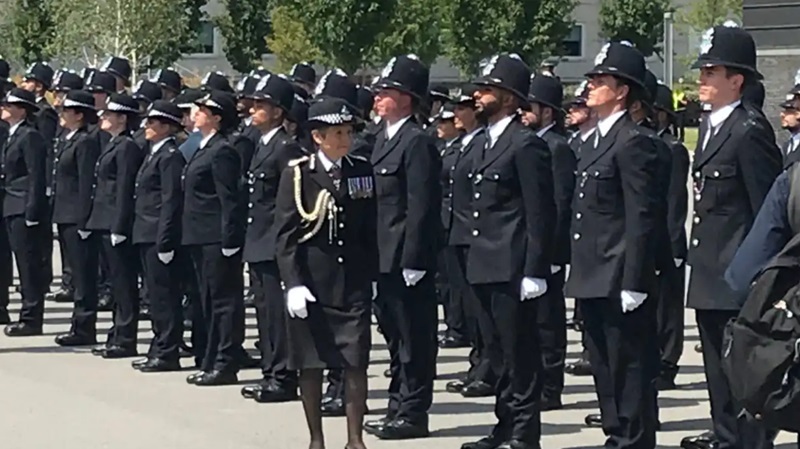
The father of modern policing is Sir Robert Peel who famously developed the London Metropolitan Police. Known as “bobbies”, presumably after Peel, they were a model of the new, centralized uniformed police force after which America’s municipal police are still modeled. Peel’s 9 principles of policing are still vital today and worth citing here:
- To prevent crime and disorder, as an alternative to their repression by military force and severity of legal punishment.
- To recognize always that the power of the police to fulfill their functions and duties is dependent on public approval of their existence, actions and behavior, and on their ability to secure and maintain public respect.
- To recognize always that to secure and maintain the respect and approval of the public means also the securing of the willing cooperation of the public in the task of securing observance of laws.
- To recognize always that the extent to which the cooperation of the public can be secured diminishes proportionately the necessity of the use of physical force and compulsion for achieving police objectives.
- To seek and preserve public favor, not by pandering to public opinion, but by constantly demonstrating absolute impartial service to law, in complete independence of policy, and without regard to the justice or injustice of the substance of individual laws, by ready offering of individual service and friendship to all members of the public without regard to their wealth or social standing, by ready exercise of courtesy and friendly good humor, and by ready offering of individual sacrifice in protecting and preserving life.
- To use physical force only when the exercise of persuasion, advice and warning is found to be insufficient to obtain public cooperation to an extent necessary to secure observance of law or to restore order, and to use only the minimum degree of physical force which is necessary on any particular occasion for achieving a police objective.
- To maintain at all times a relationship with the public that gives reality to the historic tradition that the police are the public and that the public are the police, the police being only members of the public who are paid to give full-time attention to duties which are incumbent on every citizen in the interests of community welfare and existence.
- To recognize always the need for strict adherence to police-executive functions, and to refrain from even seeming to usurp the powers of the judiciary of avenging individuals or the State, and of authoritatively judging guilt and punishing the guilty.
- To recognize always that the test of police efficiency is the absence of crime and disorder, and not the visible evidence of police action in dealing with them.
Number 7 has always held a special place in my thinking: “police are the public and that the public are the police”. Since the professionalism of policing in America this truth has been diminished in practice. Both the public and the police are at fault. The message to not get involved has been emphasized by employers, lawyers, and law enforcement. “Just call 911” is the advice (and, admittedly, not bad advice) that is universally given. But we also know that heroes aren’t limited to someone behind a badge.
In November of 2023, John Lally happened to be in the area where Houston police had become engaged in a shootout with a carjacking suspect. When Lally saw a police officer get shot, he rescued the downed officer by dragging him to safety behind Lally’s truck.
In Los Angeles in September of 2023, LAPD officers were in pursuit of a robbery suspect. When the suspect left the highway and began driving on a busy side street, a gray pickup blocked the suspect’s escape by pulling up grill to grill as officers, who had been pursuing the vehicle for over an hour, arrived to place the pinned suspect under arrest.
In Florida recently a callous hit-and-run driver smashed into a car occupied by a woman and her 8-year-old daughter, leaving the victim, Kristi Aldridge, and her daughter in the wreckage. “A total of three guys, two separate vehicles that had stopped in,” Aldridge said. “One guy stayed with me and my daughter the whole time trying to calm her down and the other two and after the guy.” Two citizens ran after the suspect along with two police officers and caught up with 39-year-old Carlos Antonio Choc and assisted in his arrest.
These, and many other accounts, reveal the power of good citizens to be an essential part of maintaining law and order. Not all heroes wear capes. Or badges.